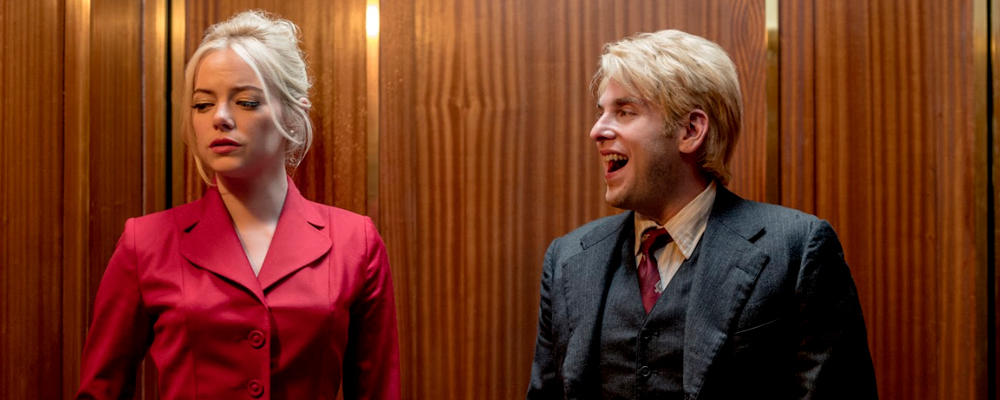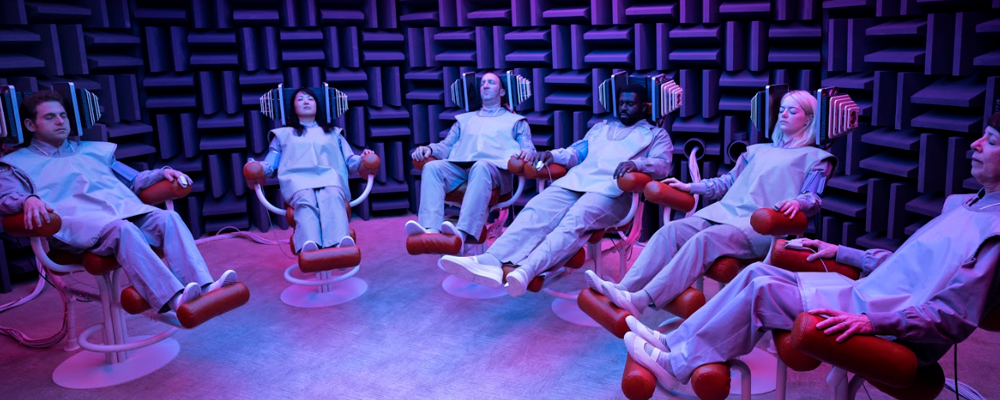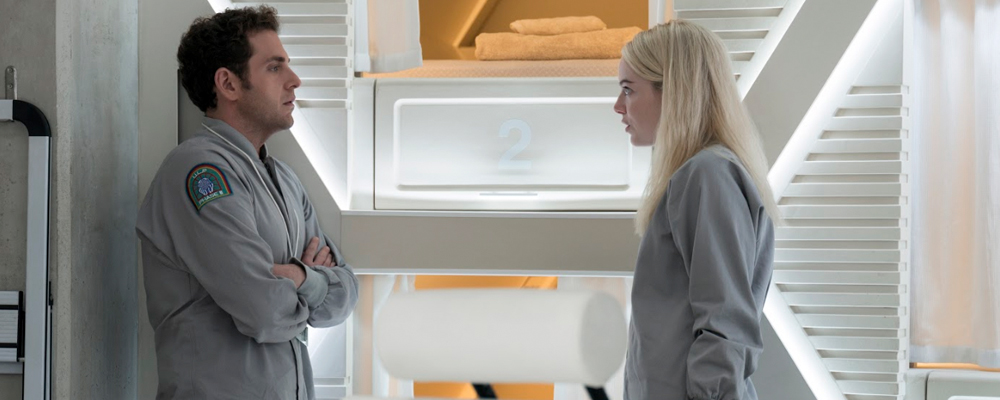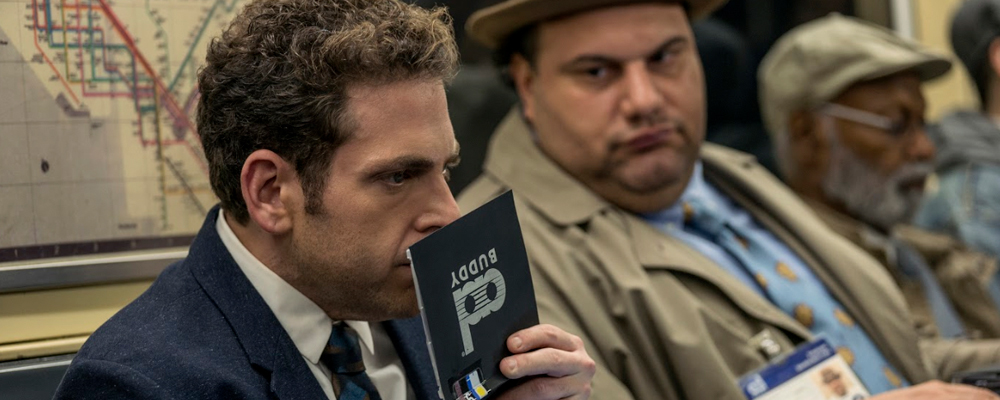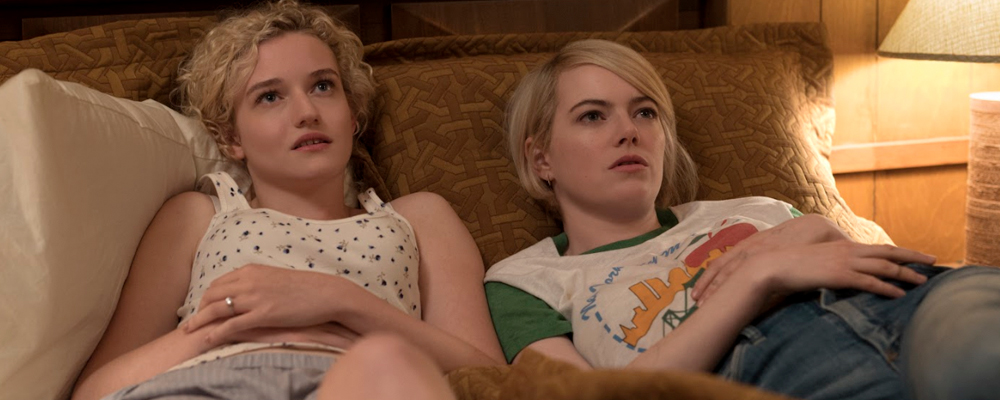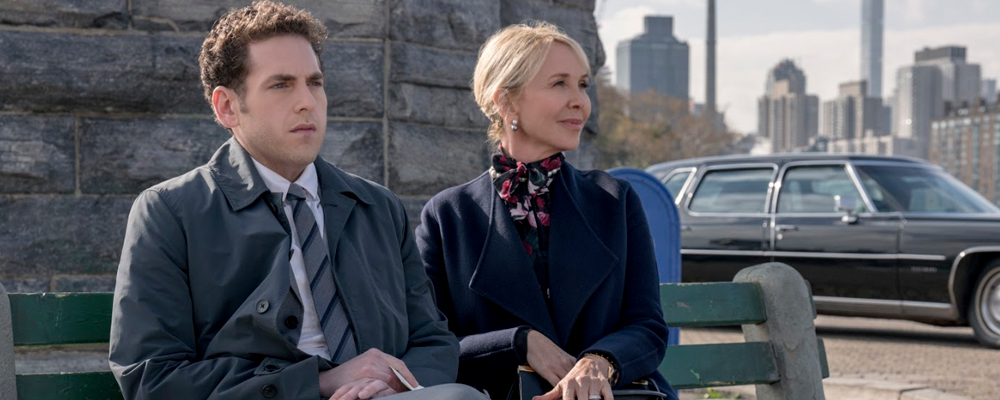Netflix’s ‘Maniac’ Throws Emma Stone and Jonah Hill Into The Deepest Recesses of Their Minds
Alci Rengifo
Science fiction and melancholy mix together in Netflix’s ambitious new miniseries “Maniac.” Visually arresting, it uses the idea of memories and daydreams to do what a lot of peak TV does these days, namely ask introspective questions about what makes us tick. Two subjects take experimental pills and this becomes a hallucinatory gateway into memories, fantasies and that eternal, torturous question of “what if?” It’s an original, immersive experience.
Two broken minds wander a futuristic New York City. Owen Milgrim (Jonah Hill) is a diagnosed schizophrenic who is convinced voices are calling him to a great mission to save the world. Owen is also the son of a powerful, wealthy family who see him as a blot on their pristine image. It also doesn’t help that he has feelings for the wife of his egotistical, chiseled brother. Lower on the social scale is Annie Landsberg (Emma Stone), who is haunted by a separation from her sister Ellie (Julia Garner), following a car accident during a contentious road trip. To appease her mind Annie takes a strange pharmaceutical drug supplied by a friend. When she runs out of the stuff she begs for more, but finds out the only way might be to sign up for a test study run by the company making the drug. When Owen loses his own office job he too signs up for the study. The tests are supervised by Dr. Muramoto (Rome Kanda), a Dr. Moreau-type who seeks to build a bridge into absolute bliss. The tests involve a sequence involving three pills labeled A, B, and C. Taking the first pill transports you back to your most traumatic memory, the other two should then guide you into a utopia of emotional and psychological freedom. But when something goes wrong with Muramoto’s computer, an artificial intelligence machine, Owen and Ellie are thrown into a warped set of alternate, mental realities.
“Maniac” is actually a remake of a Norwegian series of the same name, though less trippy. This Netflix production is a collaboration between creator Patrick Somerville, who has written for edgy and smart shows like “The Leftovers,” and director Cary Joji Fukunaga, who has gained acclaim for his work on HBO’s “True Detective” (Fukunaga has also been named director of the new James Bond film). Together the two have created a unique blend of something both dystopian and personal. The New York they imagine is a strange amalgam of futurism and 1980s vintage. Tourists gaze at a replacement for the Statue of Liberty, the Statue of Extra Liberty, which is a fierce winged angel with a giant sword. Rent is 87% of annual incomes (not too far-fetched) and little robots clean up after pets walking down the street. Yet televisions, computers and phones look taken from the Reagan era, and when Owen and Annie sit down for an introductory video about their test study it looks like VHS. A character has a sex session with a videogame character that looks fully retro. No explanation is given, this is just the world Somerville and Fukunaga have conceived to tell this story. Visually it makes for some of the most interesting and arresting imagery you’ll see this TV season. Fukunaga directs every episode and displays his craft for beautiful compositions sharp in detail. At times “Maniac” reaches the visual heights of Netflix’s other great sci-fi epic, “Black Mirror.”
But coursing through the rich visuals is a very human touch. Owen and Allie are not merely adventurers on some trippy binge, they are scarred people experiencing powerful memories and emotions through Muramoto’s drug. The first three episodes focus on the specifics of their traumas, as Owen recounts loving his brother’s fiancé while surrounded by a family both cold and aloof. He has an illness but it is cursed with having siblings who dismiss it as annoyance on the family image. His father, played by Gabriel Byrne, simply watches like a clueless patriarch as his son descends into madness. Allie’s own father spends his time hiding inside some kind of futuristic pod, speaking through a robotic filter. Allie’s memory of her last road trip with Ellie has a piercing sincerity, and it plays like a cruel memory where words are shared that can’t be taken back. By the time we reach the show’s tripped out twist, we’re not surprised these two would rather be on pills all the time.
But by the fourth episode “Maniac” reveals its true narrative wildness and becomes a collage of hallucinatory, differing scenarios. When Muramoto’s computer malfunctions, Allie and Owen are first thrown into an alternate reality where they become a married couple in the 1980s, complete with a mullet for Owen. They get caught up in a heist. This is followed by episodes involving the search for the legendary lost chapter of “Don Quixote” and even an alien invasion. The central alternate realities involve Allie getting caught in a world mixing “The Lord of the Rings” with “Game of Thrones” in its aesthetic and Owen finding himself in a gangster movie-style storyline. All of it is filmed with visual flare without losing sight of how these fantasies also express something about what Allie and Owen are feeling. It is akin to when our dreams mix and jumble fears, memories and aches from own lives, then filtering them through bizarre, mixed inventions. This makes the show a kind of Freudian dystopia, and it is both exhilarating and dramatically engaging.
“Maniac” addresses our inner selves with dark humor and rare intelligence. Given a wide platform on Netflix, the showrunners take advantage to go a little crazy, which is better than sluggish timidity (especially when there’s so much content to choose from). This is the kind of miniseries that will get attention for its visual creativity, but it’s a trip worth taking because of the deeper places it wants to explore.
“Maniac” premieres Sept. 21 on Netflix.

